There are different opinions about the work ethic of Indonesians. The attitude towards work depends on where people live in Indonesia, their upbringing, and circumstances. There are islands where Indonesians make more promises than they keep. And there are cities where residents seem to have no "brakes" and no concept of time, working almost round the clock, as if they have "endless fuel" for life. Their relentless work is often driven by the challenging situation in the country.

In Bali, it's more common to encounter both local residents and newcomers who are not diligent in their work or are looking for easy money. However, this doesn't apply to all Indonesians, and it's quite different away from tourist areas. Why is this the case?
In Indonesia, everyone is expected to work until natural death. There are no pensions or special allowances for the elderly or large families. Pensions are only provided to government employees, the widows of such employees, and other high-ranking officials. Ordinary people who don't have the opportunity to hold high positions have to earn a living as best they can.
Perhaps that's why the government turns a blind eye to the fact that Indonesians set up kiosks and food stalls without proper sanitation and in unsafe places. For example, snack stalls can operate near a road, even at a dangerous turn. In warungs (small local eateries), food vendors often wash dishes in buckets with not-so-fresh water right on the asphalt.
What's also disheartening is that while there are daycare centers for children, the fees are incredibly high. As a result, many families are forced to bring their little ones to work. It's common to see parents cooking food by the roadside while their children sit on a mat nearby and play. Education in public middle schools also partially requires parents to contribute financially, so Indonesians have to work long hours.
But before we delve into the various professions in this vast country, we'll talk not only about Bali but also about other regions of Indonesia.
Types of Jobs
Familiar professions include everything from the president, teachers, tailors, and extend to the most common job - food vendors, sellers of cold drinks, and other goods. There are also lifeguards, firefighters, doctors, farmers, factory workers, architects, and machine operators, just like in most other countries.
However, in Indonesia, there are unusual professions that you may not have come across before. It's surprising how Indonesians have a flair for creating unique businesses or finding easy ways with minimal investment.
Easy Money

There are enthusiasts for easy money who put in minimal effort in searching for a job. This can be encountered in many regions of Indonesia. People have decided to put on their own performances on the roads near traffic lights or in crowded areas. Dressed as clowns or donning the costume of a giant doll, these fantasists stand, dance, or play a mini-guitar.

Then there are even more "creative individuals" dressed only in shorts and a hat, covered in silver paint from head to toe. They are called "manusia silver" - the silver people. So, that's the entire job - they stand with a box, and people pay them for their "performance." Although, of course, they are heroes because enduring the scorching sun, all while covered in paint, is not something everyone could do.
In some regions of Indonesia, young people with guitars, drums, and drums go from house to house and startle all the residents with their incredibly loud singing and mini-orchestra! Oh, how much patience is needed, especially for those who have just fallen asleep! Although there are street singers with beautiful voices.
Indonesians can calmly and tactfully "chase away" or toss a few coins to make the walking concert go away and not disturb them.
There are people who don't want to do anything at all, and it's noticed that they are content with life. Although their appearance sometimes looks dreadful!
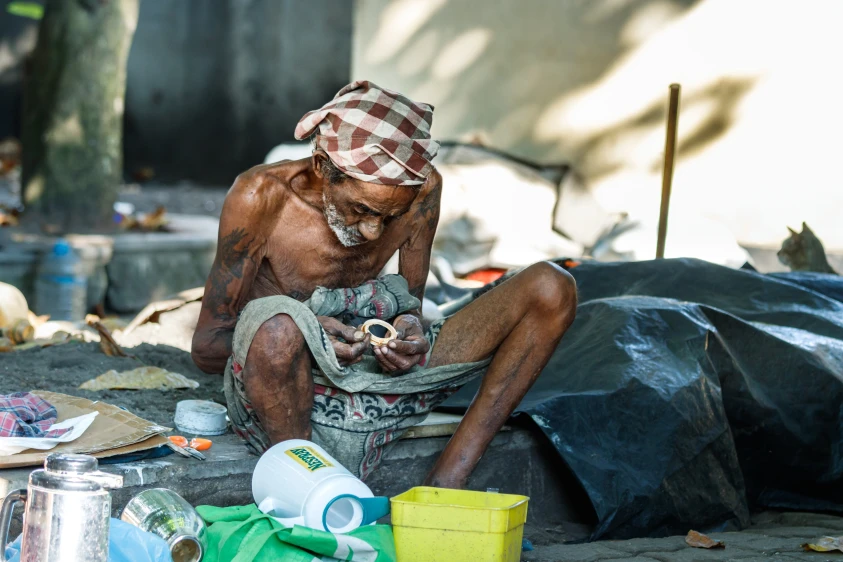
Food on Wheels
Indonesians love to eat, and they do so at any time of day. Many food stalls, therefore, operate until late at night, and some even through the early morning hours.
Food is delivered right to your doorstep from a mobile kiosk built into a motorcycle or bicycle. Inside, there are openings for pots, a gas cylinder, and bottles for spices and sauces. As this wandering cook travels through the streets, they gather residents by ringing a bell or tapping a bowl with a spoon. Most often, you can buy dishes like bakso, which is similar to meatball soup, or nasi goreng, which is fried rice, from such kiosks.
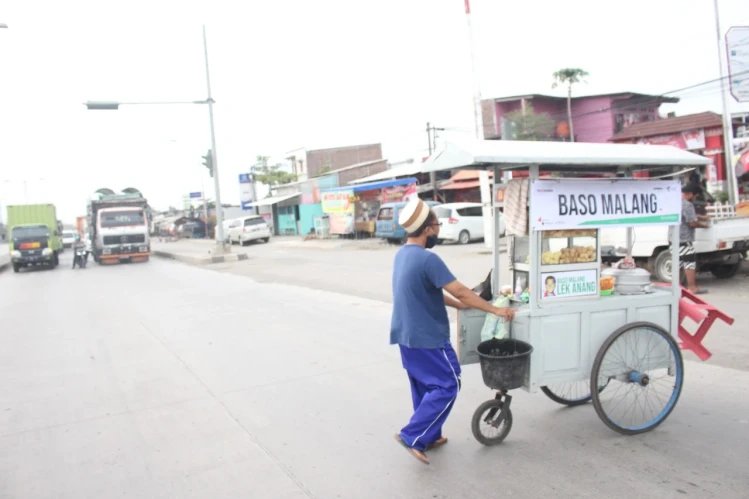
They also sell ice cream, steamed pastries, various sweets, boiled corn, dried fish skin, and fried snails in boxes. Each seller has their own music or familiar sound so that customers can recognize them.
Shoemakers also offer their services by traveling through the streets, asking who needs their shoes repaired.
In Indonesia, the sale of used cardboard and plastic products is widespread.
A very profitable business in hot Indonesia is the sale of cold beverages of various flavors. Tea, juice, coffee, jelly water, cocktails, milk, and much more are mixed with ice and sold in packets with straws or plastic cups.
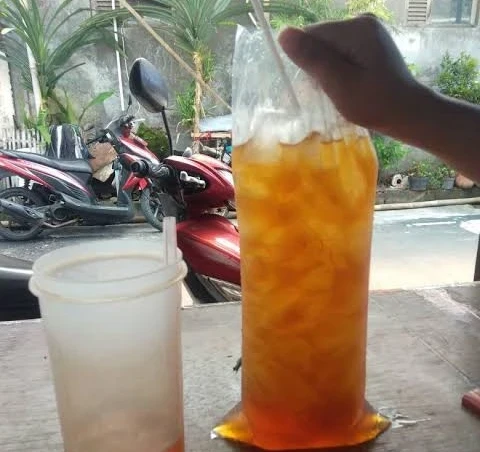
Taxi and Transportation Services
The most popular transportation services in Indonesia are motorcycle taxis (mototaxis) and car taxis. For example, there's the company Gojek. Through it, you can now get delivery of various goods, food, and make different payments through the app. There is also a similar company called Grab. Working as a courier through private postal departments like Sicepat, JNE Express, Ninja, and others is also popular.
For the budget-conscious population, there is cheap transportation called "becak," which can be a bicycle rickshaw or a motorized rickshaw. They charge a low fare for rides.
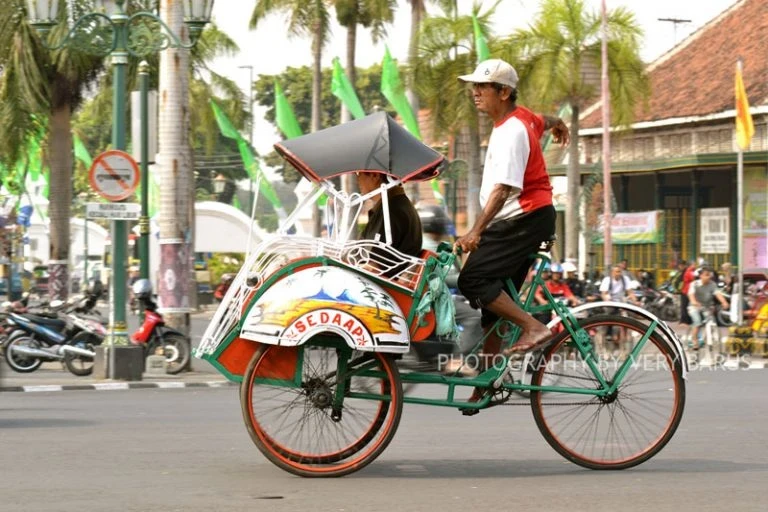
Culinary and Craft Professions
In Indonesia, there are many free training courses organized by the government. One of the popular professions is culinary. Therefore, there is an incredible number of shops in the country that sell pastries, bakery products, and similar baked goods.
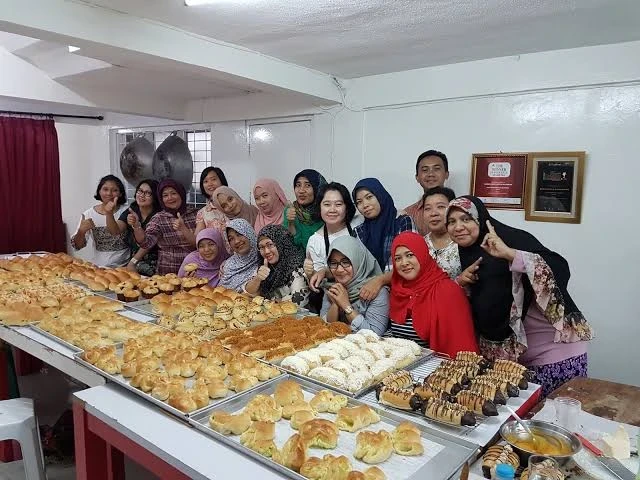
Indonesians love, for example, chocolate cakes like Brownies, pineapple jam cookies called Nastar, small traditional pastries called Bakpia filled with green bean paste, and much more. These products are sold both offline and online through platforms like Shopee and Lazada.
Craftsmen and seamstresses include not only women but also many male tailors.
Small-scale entrepreneurs often don't have the means to rent dedicated spaces, so they set up their sewing machines by the roadside and wait for customers and orders. Some tailors even integrate sewing machines into motorcycles, eliminating the need for a chair, as they have something to sit on in this case.
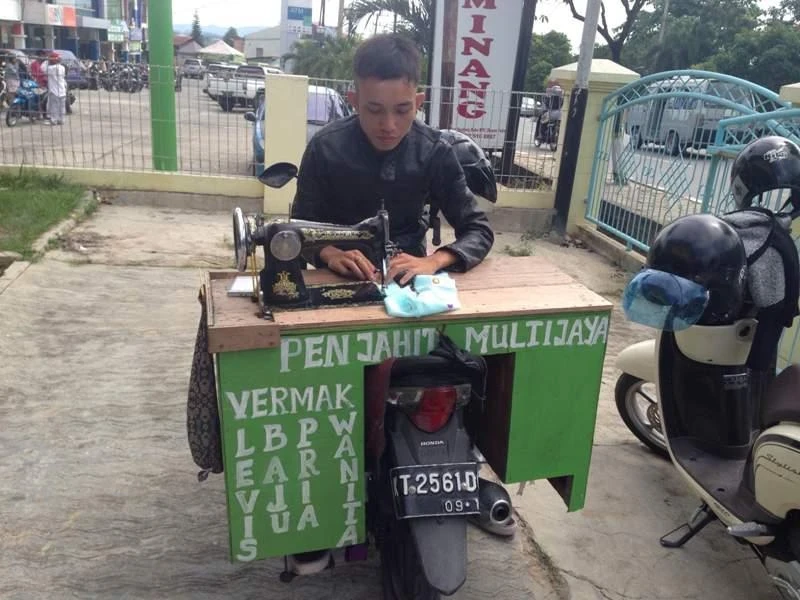
There are tailors who have mini sewing factories set up in their homes. They hire people and produce whatever the customer desires. There is especially a lot of work when they receive orders from families for weddings. They sew uniforms, dresses, curtains, and tablecloths, all in the same color, for everyone.
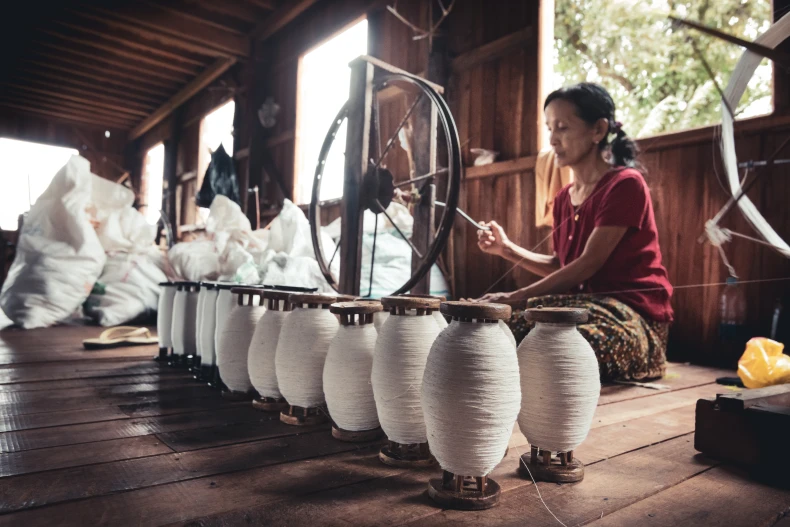
Organizers of Mass Entertainment
In parks and recreational areas designed for children, teenagers, and families, spaces for beneficial games have been created. For example, a small pool with colorful fish has been constructed. Nearby, there are activities involving modeling clay and canvas painting.
Furthermore, on automobiles, they install a brightly lit, colorful-painted mini-train that spins around itself. Children can sit in it and enjoy the ride for as long as they want.
“Wandering Merchants”
Frequently, you can encounter workers resembling merchants. They are something like suppliers of stationery, snacks, and clothing to stores and kiosks. For the convenience of transporting goods, they sell huge baskets in the form of two square boxes mounted on the motorcycle seat, made of sturdy material or dense fabric. This allows them to carry more products for sale.
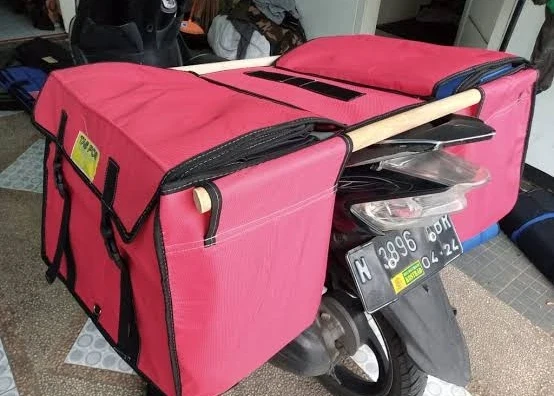
Working in Rice Fields
The grueling work in rice fields doesn't seem overly difficult for many local residents. Their love for rice as a source of life drives them to work tirelessly and with enthusiasm in the fields. Indonesian farmers work knee-deep in wet soil, carefully following specific guidelines for rice cultivation.
The demand for rice in Indonesia never decreases, so its production is closely monitored. Although there are plenty of rice fields in the country itself, rice is still imported from Thailand. Local residents consume it approximately three times a day, and it is believed that without rice, there would be no energy for life, and a constant feeling of hunger would persist.
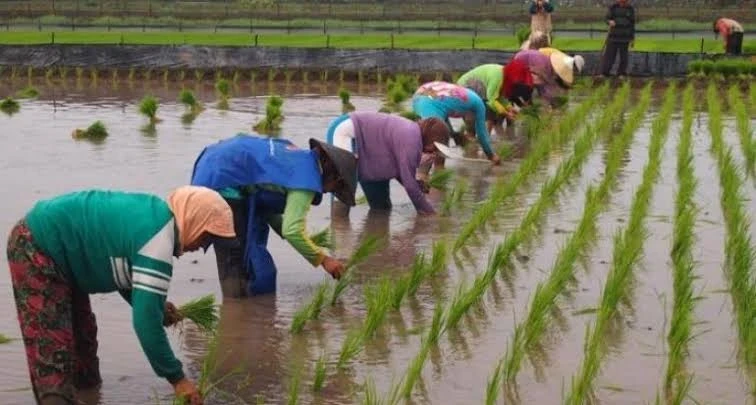
To protect the harvest from birds and other insects, the rice stalks are covered with wide nets. Additionally, there are workers who guard the fields against such "raiders." They walk around the field and make noise with some object, thus scaring away the thieving birds.
Construction
In Indonesia, the construction of residential quarters designed as separate communities is very popular. Therefore, the profession of builders is highly relevant. The government has organized subsidies for those who want to buy a house on credit. In other words, they pay part of the funds for a small house, thus helping financially struggling families acquire their own homes.

Rest
Indonesians certainly take time off on weekends, but not always. More often, they await extended breaks depending on religious holidays. For example, in Islam, it is customary to observe the so-called "puasa" every year for one month, which marks the start of fasting, where one cannot eat from morning until evening. During these days, families visit each other, seek forgiveness from neighbors and friends, and enjoy ample relaxation.
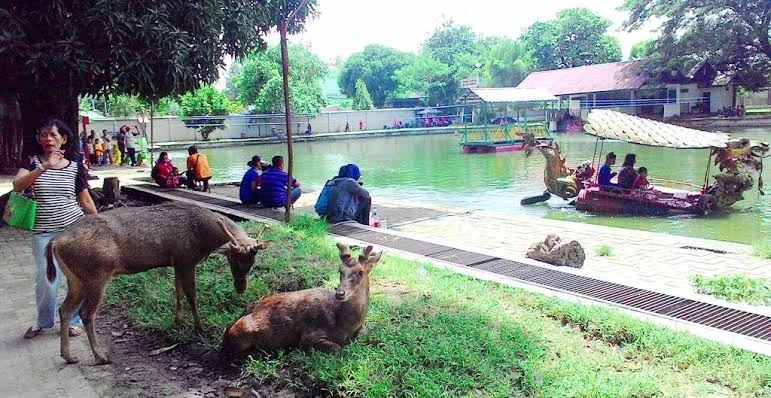
Also, for local residents, leisure time includes simple activities like shopping at shopping centers, dining out at restaurants, visiting parks, and spending time at children's playgrounds. Some engage in sports or go for family walks.
From the story of a local family:
One family, which has two teenage children, follows this daily schedule. To prepare several types of food for the morning, they wake up at one in the morning. They gather at 5 or 6 in the morning and start working in a tent where they sell "soto" soup and various fried vegetables. After selling everything, they move to another location and fry bananas, vegetables in batter, and work until 6:00 PM. After the workday, they return home, take a short rest, and start preparing for the next day again. They go to bed around 10:00 PM or later. And they repeat this every day! Interestingly, they don't feel tired; they are always lively, energetic, and cheerful!
These are the kinds of families you can find in Indonesia. While their work-life balance may not always be ideal, they inspire hard work for the sake of their families and children, as much as their strength allows!
You can add one right now!